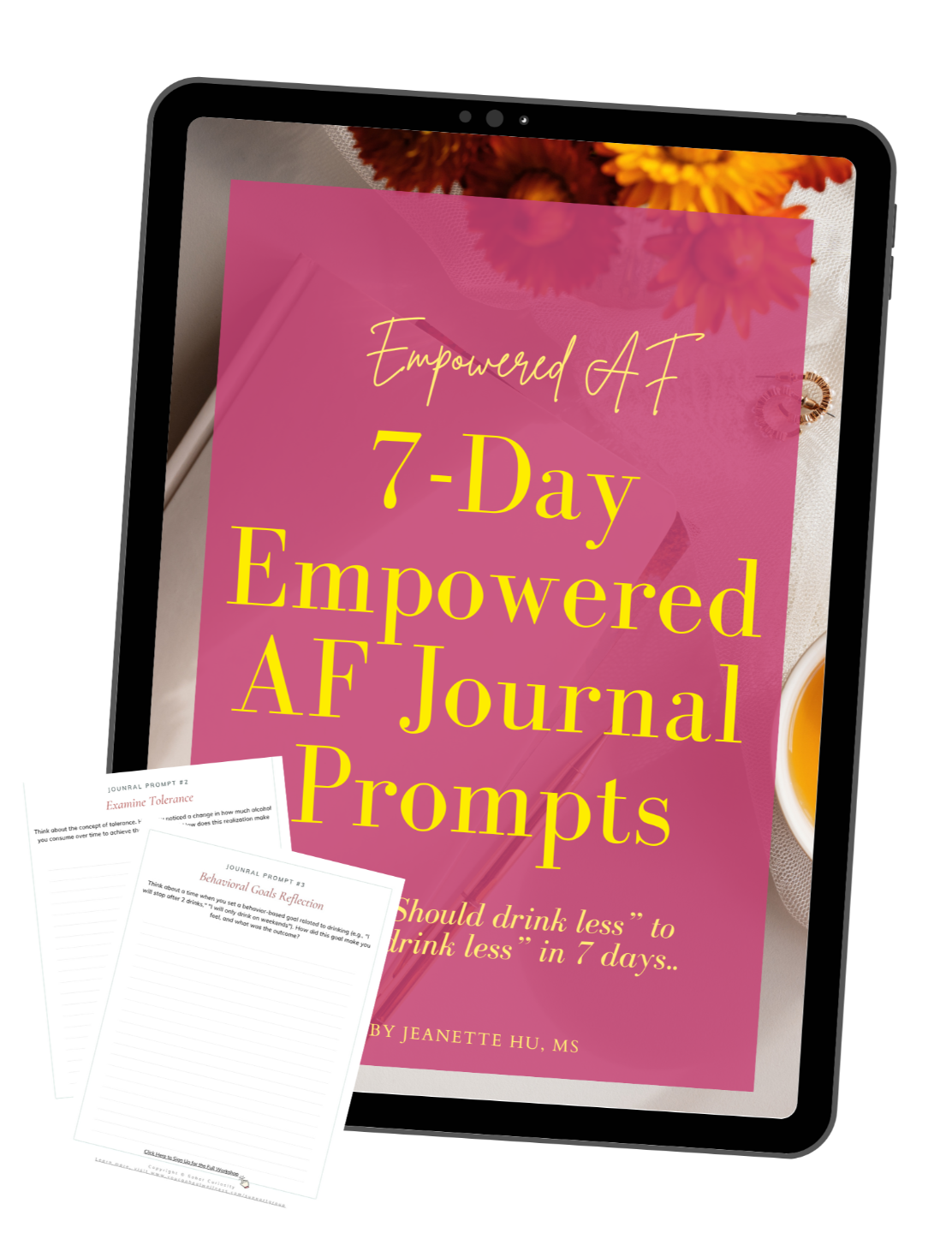How do you know if moderation is right for you?
Jun 25, 2025
“ How do I know if moderation is right for me?”
It’s a question almost all my clients have pondered as they work to change their relationship with alcohol.
My short and sweet answer?
I wish I could give you a clear yes or no. But ultimately, it’s a decision only you can make.
What I can do is lay out the facts—so you can make an informed choice about whether moderation is truly the right path for you.
But before we get into that, let me say this: You’re not alone in wondering.
At some point, nearly all of us tried to moderate.
My Little Moderation Game
Once a decade-long daily drinker, I know the attempt to moderate so well that I even made up a little game that I called “making up new rules moderate”.
I’m not a very creative person, but when it came to inventing rules to manage alcohol (so I wouldn’t really have to give it up)... I got very creative.
Let me share just a few of my “brilliant” ideas:
- Lock up all my liquor and make my partner hide the key.
- Put $5 in a jar every time I had a drink.
- Do 30 jumping jacks between every drink. (Please don’t try this one.)
Did any of them work?
Well... not quite.
The 7-Eleven two blocks away was a quick fix for the locked liquor. My $5 jar filled up fast—then I used it to buy more booze. The jumping jacks? I twisted my ankle on day one—and that was the end of that.
The 30 Reasons Why People Drink Checklist
Go from “What’s wrong with me?!” to “Oh, there’s NOTHING wrong!”
By signing up, you'll be added to Jeanette's (that's me!) newsletter list. Rest assured, you can unsubscribe at any time.
The Mental Load of Moderation: Why It’s So Exhausting
Moderation may sound easier than abstinence, but in reality, it often requires more mental effort. By definition, moderation means ongoing decision-making.
Every event, mood, or social outing becomes a negotiation:
“Will I drink?”
“How much?”
“What’s the rule tonight?”
And every decision takes energy. Decision fatigue happens when our mental resources get depleted by the sheer volume of choices we have to make. As the fatigue builds, it becomes harder and harder to make the “right” decisions.
That’s why so many people feel irritable, anxious, or worn out when they try to moderate. There are simply too many decisions, and a lot of the time, the “right” decision is against what we crave.
This is one of the biggest reasons many ex-drinkers eventually choose to remove alcohol altogether. Because one strong decision can free you from the exhaustion of a thousand small ones.
The Tolerance Trap: The Dilemma That’s Impossible to Solve
Besides decision fatigue, another hidden challenge in moderation is tolerance.
The light, tipsy feelings that many of us enjoy after the second cocktail are actually the early effects of intoxication— our brain is beginning to shut down certain functions. But here’s the catch: the human body is designed to adapt—even to toxins.
Over time, as our systems get more efficient at processing alcohol, the same amount no longer delivers the same buzz.
That’s why moderation often eventually slides back into heavier use. As tolerance builds, the only way to feel the same effect is to drink more.
And that’s the heart of the moderation dilemma: You either stick to your rules and feel very little. Or break your rules in order to feel something.
At some point, many people are left asking: What’s the point?
This is only the first hard truth about moderation. Now let’s look at the real deal breaker that has made many ex-drinkers decide to leave alcohol behind for good: the joy drain of homeostasis.
The Joy Drain of Homeostasis: When the Buzz Stops Buzzing
If you don’t mind that the buzz fades over time, homeostasis is where the bad news gets worse.
Homeostasis is our body’s built-in drive to maintain balance—whether that’s temperature, hydration, or brain chemistry. So when something pushes our system out of balance, our body works hard to restore it.
Alcohol pushes hard. It artificially stimulates the brain’s pleasure circuit, releasing feel-good chemicals that create a temporary high—euphoria, ease, that warm sense of “all is well.” But because alcohol overstimulates the system, your brain responds by dialing down its own production of those chemicals and dialing up stress hormones like cortisol to compensate.
That’s why, after the buzz wears off, you’re often left feeling flat, anxious, or low. Over time, as tolerance builds and homeostasis keeps working in the background, the highs get shorter, and the lows get deeper. That’s why many drinkers end up drinking just to feel normal.
It can take up to two weeks for your brain and body to fully reset after drinking. Which means the true cost of “just one glass” is a slow, quiet drain of your baseline joy, even on the days you’re not drinking.

The Role of Boundaries in a Thriving Sober Life
At Sober Curiosity, we believe that truly breaking free from alcohol’s hold—and building a thriving alcohol-free life—takes more than just “stop drinking.” It takes four pillars to create a sustainable sobriety system:
- Pillar One – Value: uncovering your whys behind choosing sobriety
- Pillar Two – Belief: changing the story you’ve been told about alcohol and yourself
- Pillar Three – Action: breaking the drinking pattern and replacing alcohol with more empowering options
- Pillar Four – Result: embracing the full journey—both the wins and the setbacks
Real change doesn’t always start with a big decision—it often starts with small internal shifts. This blog lives in the Belief pillar inside my Four Pillar Sobriety System™—because before we can change our drinking, we often have to change the story we believe about alcohol.
Join The Sober Curiosity Insider
Get bite-sized sober curious insights straight to your inbox. Making taking a break from alcohol easier than ever.
By signing up, you'll be added to Jeanette's (that's me!) newsletter list. Rest assured, you can unsubscribe at any time.
TL;DR: “Why is it so hard to say no to alcohol?
🧠 Saying no is hardwired to feel risky — our brains are built for connection, and we instinctively want to avoid rocking the boat.
📉 While a “no” might cause short-term discomfort, it often leads to long-term respect.
🌿 Saying no doesn’t have to be blunt — it can be graceful, spacious, even kind.
💖 At its core, every “no” is actually a yes — to your values, your peace, and the life you’re choosing.

TL;DR: How do you know if moderation is right for you?
Short answer? I can’t decide that for you. But I can lay out the facts to help you make a more informed choice.
Here’s what you need to know about moderation:
🍷 Moderation demands constant decision-making—which creates mental fatigue over time.
⚖️ As tolerance builds, you either stick to your limit and feel little to no buzz or increase your intake and break the rules.
😐 Even “moderate” drinking disrupts your brain’s chemistry, leaving you feeling flat, restless, or low for days afterward.






You’re Too Smart to Still Be White-Knuckling It.
Take this quick 7-question AF Breakthrough Quiz below to find out exactly where you are in your alcohol-free (AF) journey—and what to focus on next to stop spinning your wheels and finally break the cycle for good.




